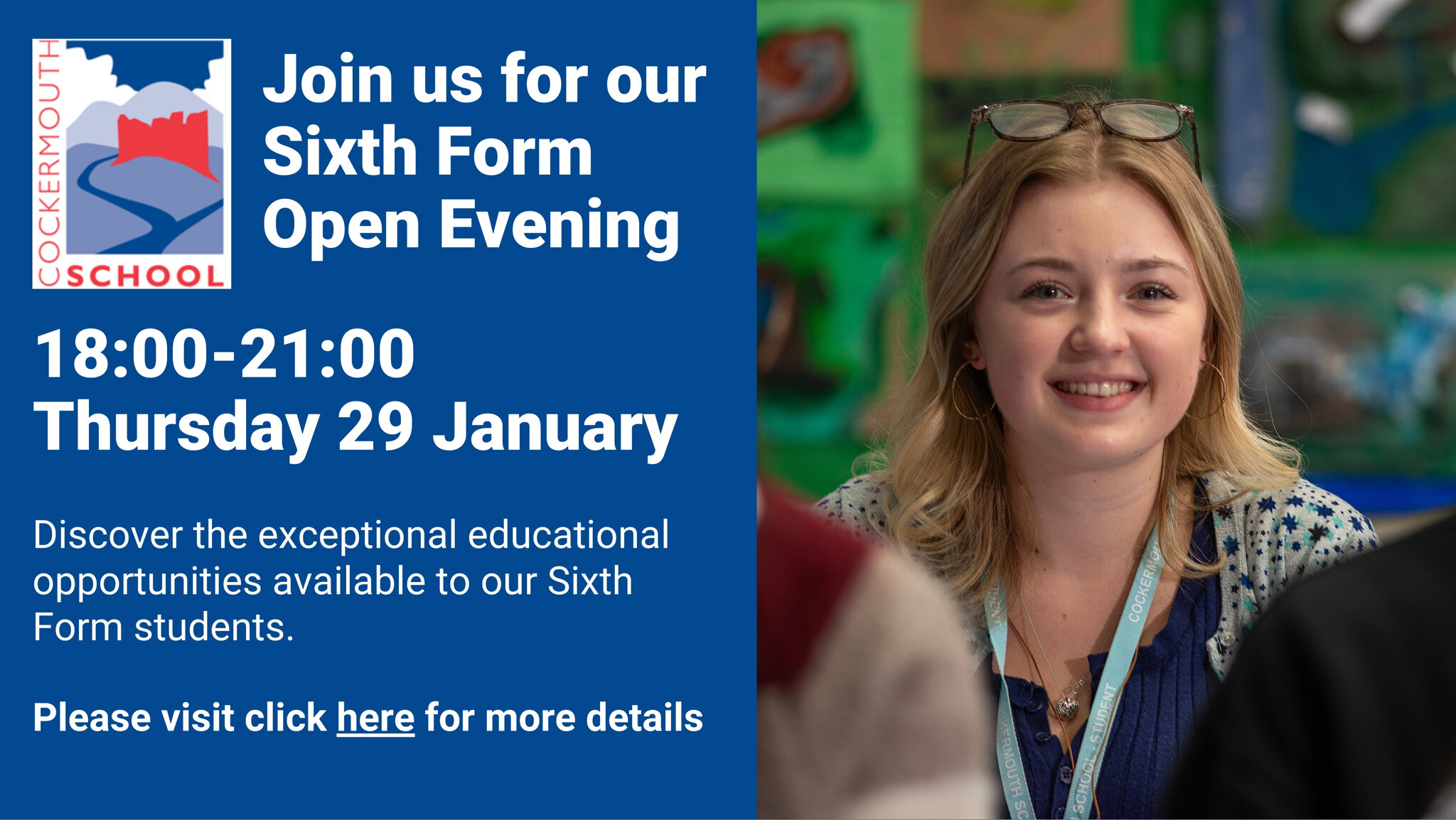Applications are now open for secondary school places for September 2026
Applications for Year 7 in September 2026 should be submitted to Cumberland Council (The Local Authority) by 31 October 2025.
Applications can be completed online here or sent directly to Cumberland Council Admissions.
If you are considering sending your child to Cockermouth School, you may wish to read our Admissions Policy below.
Transition Process
We are committed to providing you with all of the information that you could need as you look to select a destination for your child for September 2026.
If you have specific questions that you would like to have answered then please email year6transition@cockermouthschool.org and you can be assured of a prompt response.
Year 6 Open Evening - 2 October 2025
To enable us to accommodate all students and their families on the evening, we invite you to attend at the following times:
| Time | Current Primary School |
| 17:30 | Fairfield |
| 18:00 | All Saints', Broughton, Lorton and St Bridget's |
| 18:30 | Bridekirk Dovenby, Dean and Eaglesfield Paddle |
| 19:00 | Students from any other schools |
Please see a letter which provides further information about the evening.
We are looking forward to welcoming families from across the local area to join us at our Open Evening. If you child attends a primary school that isn’t directly referenced in the table above, please contact us to find out more and book your place. Please email year6transition@cockermouthschool.org providing your child’s name, their current school and the number of seats that you would like to reserve at the 19:00 presentation.
If you are unable to attend your allocated presentation, have any specific access requirements or questions about the evening or the transition process more widely, please do not hesitate to get in touch. We are keen to welcome you into our school and to work with you, to ensure that you have all of the information that you need.
Year 6 Open Mornings – 7 October 2025, 9 October 2025 & 15 October 2025
We are now accepting bookings for our Open Mornings, please email year6transition@cockermouthschool.org to express an interest in joining us. The mornings will run from 10:45am-12.30pm, in your communication please state a preferred date if you have one. We are keen to welcome any families who have a particular interest in seeing the school during the working day and are especially looking forward to welcoming any families who are unable to join us on our Open Evening.
We look forward to welcoming you to Cockermouth School. A community school, that strives to provide an exceptional learning experience for all. #WhereYouBelong
Where your future begins
Welcome from Richard King - Headteacher
Welcome from Michelle Henley - Senior Deputy Headteacher
Welcome from Ian Routledge - Assistant Headteacher: Transitions, Careers and Engagement






